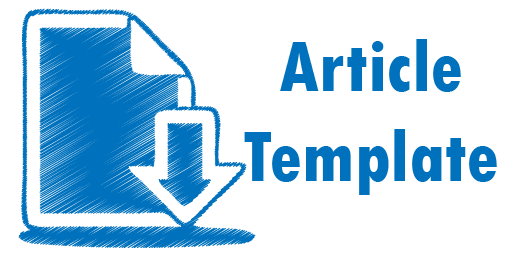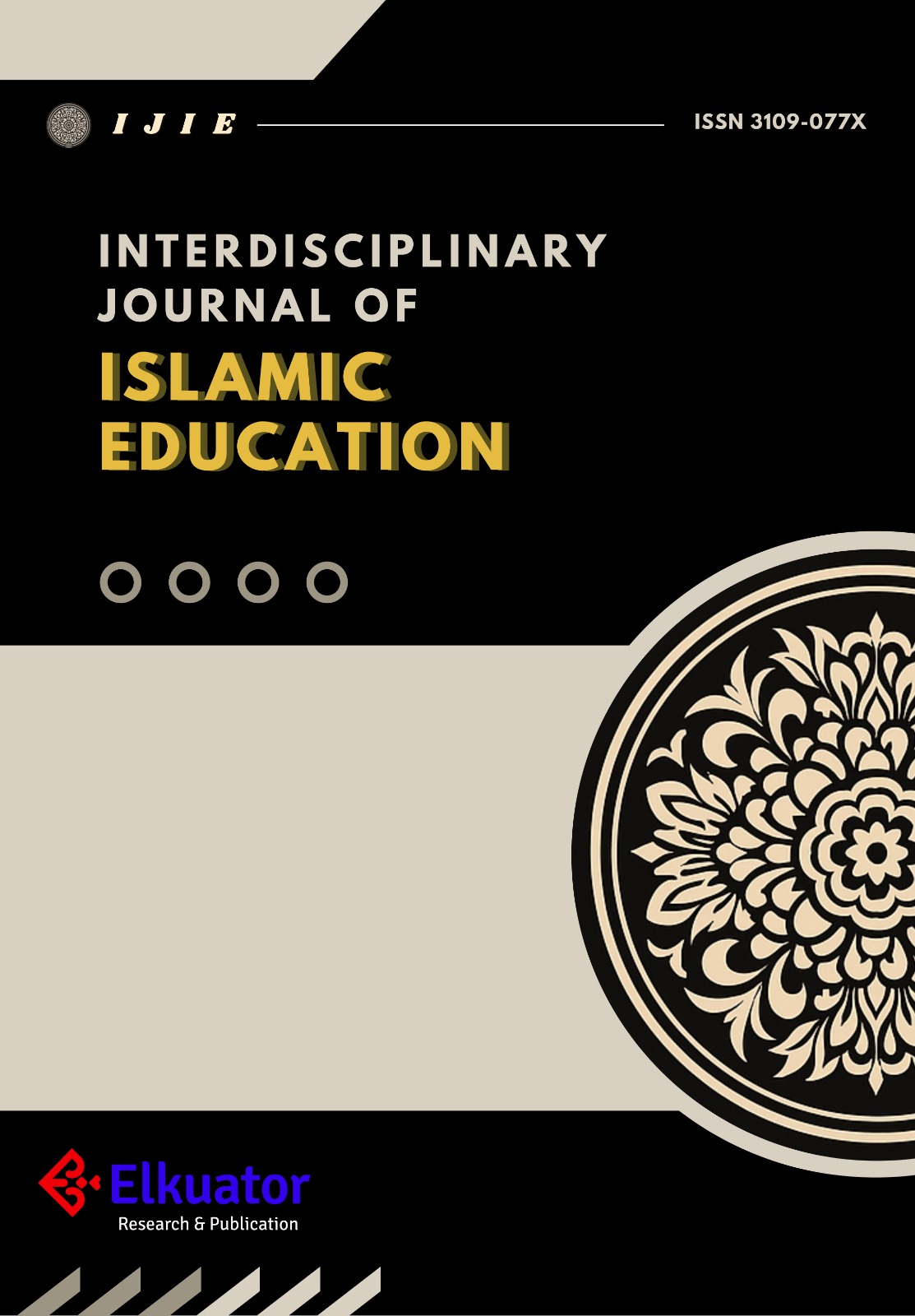Bridging Structure and Agency: The Merdeka Curriculum in Madrasahs through the Lens of Anthony Giddens’ Structuration Theory
DOI:
https://doi.org/10.24260/ijie.1.2.54Keywords:
Merdeka Curriculum, Madrasah, Teacher as Agent, Learning Practices, Structuration Theory, Anthony GiddensAbstract
Behind the formal curriculum design documents, often appearing as top-down blueprints, lies a dynamic interplay between teachers and students within the classroom. This is particularly evident in madrasahs, where religious values are intricately embedded in pedagogical practice. This study explores how the Merdeka Curriculum, emphasizing flexibility and character development, is not merely implemented but is interpreted and negotiated by educational agents: teachers and students. Drawing on Anthony Giddens’ (1984) theory of structuration, the curriculum is approached not solely as a constraining structure but also as an enabling arena. Using a descriptive qualitative methodology and a literature-based analysis of contemporary studies within madrasah contexts, the research finds that teachers function as implementers and active interpreters of curricular content, reshaping prevailing pedagogical norms. Within the structuration framework, the curriculum assumes the role of a structure of signification providing symbolic meaning in the learning process; a structure of domination positioning teachers as holders of authority and resources; and a structure of legitimation manifesting agreed-upon rules and expectations. Curriculum implementation, therefore, is not a mere administrative task but a recurring social practice deeply entangled with local contexts. In madrasahs, such contexts encompass Islamic values, communal culture, and aspirations for nurturing individuals of strong character. These findings underscore that meaningful educational transformation must be grounded in the dynamic interplay between structure and agency, where teachers and students play a pivotal role in transforming curriculum into a lived, value-laden experience.
References
Achmad, Z. A. (2020). Anatomy of Structuration Theory and Ideology of the. Jurnal Translitera, 9(2), 45–62. https://ejournal.unisbablitar.ac.id/index.php/translitera/article/view/989
Beilharz, P. (1991) Social Theory: A Guide to Central Thinkers. St Leonards, NSW: Allen & Unwin.
Daga, A. T. (2021). Makna Merdeka Belajar dan Penguatan Peran Guru di Sekolah Dasar. Jurnal Educatio FKIP UNMA, 7(3), 1075–1090. https://doi.org/10.31949/educatio.v7i3.1279
Dewi Anggelia, Ika Puspitasari, & Shokhibul Arifin. (2022). Penerapan Model Project-based Learning ditinjau dari Kurikulum Merdeka dalam Mengembangkan Kreativitas Belajar Pendidikan Agama Islam. Jurnal Pendidikan Agama Islam Al-Thariqah, 7(2), 398–408. https://doi.org/10.25299/al-thariqah.2022.vol7(2).11377
Dewi Rahmadayani, A. H. (2022). Jurnal basicedu. Jurnal Basicedu, 6(4), 5877–5889. https://doi.org/10.31004/basicedu.v5i4.1230
Giddens, A. (1984) The Constitution of Society. Cambridge, Massachusetts: Polity Press.
Khoiriyah, H. (2019). Desain Pengembangan Kurikulum Pembelajaran Bahasa Arab Di Malaysia. Lisanan Arabiya: Jurnal Pendidikan Bahasa Arab, 3(01), 45–63. https://doi.org/10.32699/liar.v3i01.999
Pendidikan, T., & Kini, M. (2024). Pentingnya Pelatihan Kompetensi Guru dalam Menghadapi Tantangan Pendidikan Masa Kini. 5(3), 258–265.
Priyadi, M. S., Rachmatia, M., Al Hadi, I. A., & Suhariyanti, M. (2024). Kendala Implementasi Kurikulum Merdeka Di Sekolah Dasar. Griya Cendikia, 9(1), 114–121. https://doi.org/10.47637/griyacendikia.v9i1.1094
Rahayu, R., Rosita, R., Rahayuningsih, Y. S., Hernawan, A. H., & Prihantini, P. (2022). Implementasi Kurikulum Merdeka Belajar di Sekolah Penggerak. Jurnal Basicedu, 6(4), 6313–6319. https://doi.org/10.31004/basicedu.v6i4.3237
Rose, P. A., & Pennings, A. J. (2022). Knowledge, Decisions, and Norms: A Framework for Studying the Structuration of Spreadsheets in Social Organizations. Information (Switzerland), 13(2), 1–21. https://doi.org/10.3390/info13020046
Rudi Hartono, I Wayan Suastra, & I Wayan Lasmawan. (2023). Implementasi Kurikulum Merdeka Dalam Melestarikan Budaya Nusantara. EDUKASIA: Jurnal Pendidikan Dan Pembelajaran, 4(2), 823–828. https://doi.org/10.62775/edukasia.v4i2.356
Ummah, M. S. (2019). Pengembangan Kurikulum Merdeka . Sustainability (Switzerland) (Vol. 11, Issue 1). http://scioteca.caf.com/bitstream/handle/123456789/1091/RED2017-Eng-8ene.pdf?sequence=12&isAllowed=y%0Ahttp://dx.doi.org/10.1016/j.regsciurbeco.2008.06.005%0Ahttps://www.researchgate.net/publication/305320484_SISTEM_PEMBETUNGAN_TERPUSAT_STRATEGI_MELESTARI
Vhalery, R., Setyastanto, A. M., & Leksono, A. W. (2022). Kurikulum Merdeka Belajar Kampus Merdeka. Research and Development Journal of Education, 8(1), 185–201.
Wannesia, B., Rahmawati, F., Azzahroh, F., Ramadan, F. M., & Agustin, M. E. (2022). Inovasi Pembelajaran Kurikulum Merdeka di Era Society 5.0. Media Penelitian Pendidikan : Jurnal Penelitian Dalam Bidang Pendidikan Dan Pengajaran, 16(2), 232–234. https://doi.org/10.26877/mpp.v16i2.13479
Downloads
Published
Issue
Section
Copyright and License
Copyright (c) 2025 Siti Halijah (Author)

This work is licensed under a Creative Commons Attribution-NonCommercial 4.0 International License.













